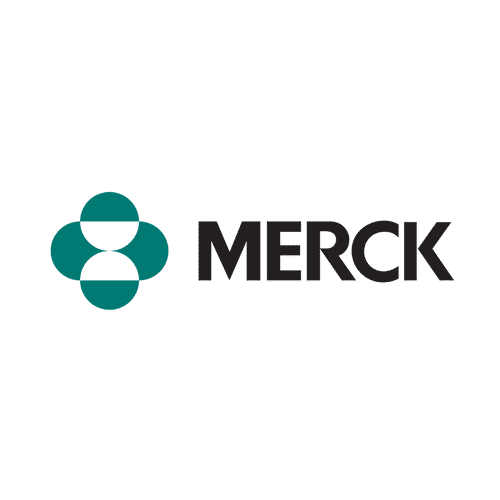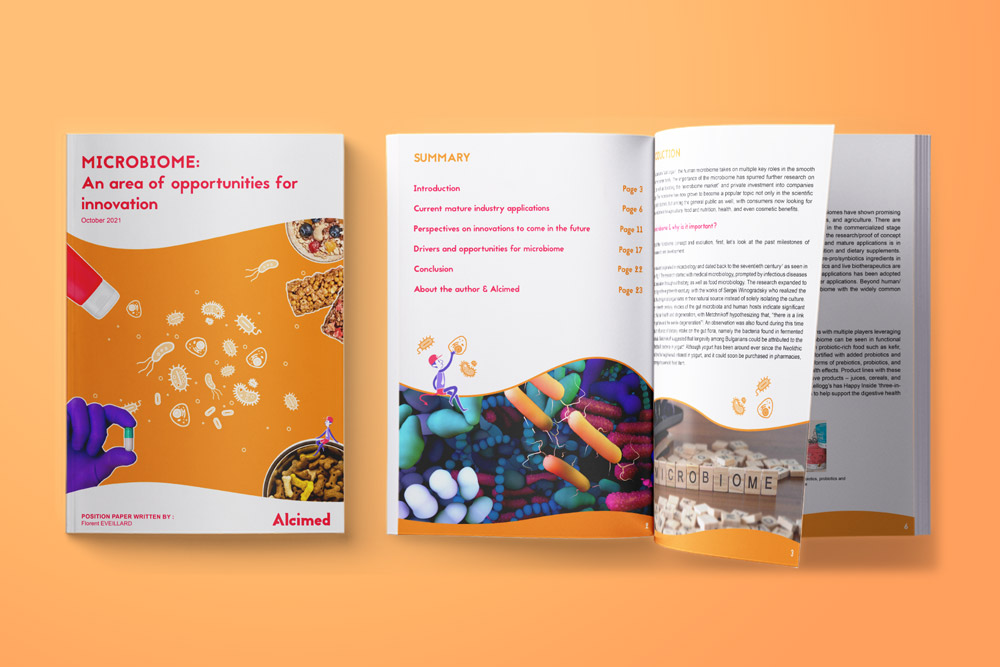
Microbiome

Develop research and innovate in the microbiome therapy market
Our specialized team supports companies in their projects related to the microbiome market, whether it’s conducting a scientific state of the art, guiding R&D programs, searching for partners, defining a commercial strategy, or launching new products.
They trust us









The challenges related to the microbiome
In recent years, the microbiome has been an important subject of work for many sectors and industries, including health. The gut microbiota in particular is an important scientific discovery in recent years and its development has been made possible by the development of high-throughput sequencing techniques and omics technologies allowing the analysis of the genome of microorganisms, coupled with much greater computing capacities than before. Interest in the gut microbiota is reflected in the number of scientific publications on the subject which have more than doubled over the past ten years.
The essential role of the microbiome in the functioning of the body has been discovered. Bacteria of the gut microbiota not only transform food into energetic nutrients, but are also believed to control bone metabolism, epithelial repair, vessel maturation, synthesis of vitamins, enzymes and neurotransmitters. They would play a barrier role against pathogenic microorganisms and destroy toxic substances. Finally, the gut microbiota also participates in the development and maturation of the immune system and the central nervous system, and could have a role in the modulation of behavior.
These discoveries open the way to new markets and in particular to innovative therapeutic solutions. The main challenges for the pharmaceutical industry, biotechs and the whole research community are:
Because of their essential role in the functioning of the body, the disruption of the balance of the bacterial population present in the intestine, and therefore of the gut microbiota, could be at the origin of the occurrence of a large number of chronic diseases such as inflammatory bowel diseases, metabolic diseases, mental disorders, neurological disorders, allergies, etc. In many diseases, we find the presence in large numbers of certain bacteria rather than others, and a lower diversity of bacteria. The occurrence of certain cancers could also be linked to the microbiome.
What are the mechanisms at work on the triggering and evolution of chronic diseases linked to the microbiota?
We know that the first 1000 days of a child’s life are decisive for its development and the health of the adult it will become, and this is also true for the gut microbiota. Numerous clinical studies show that the number and diversity of the microbiota population increases considerably during the first three years of a child’s life. All the factors influencing the microbiota, as well as a delay or a modification in its implantation, have important effects on the future adult and would play a role in the appearance of chronic diseases. Likewise, delivery by cesarean section, which prevents the mother from transmitting her vaginal microbiota to the baby, could increase the risk of the emergence of immune diseases.
What approaches should be put in place to promote the development of the microbiota in children?
Restoring the balance of the microbiota is becoming a major challenge for developing new treatments, based on food and microbiota transplantation. Diets personalized to the microbiota of each individual can be developed as a preventive and curative measure, coupled with the intake of probiotics and prebiotics. Therapeutic fecal transplantation is also an option, which is now effective against intestinal infections such as Clostridium difficile. While fecal transplantation has been recognized as a drug in France, several clinical trials are underway to test the effectiveness of this therapeutic option in pathologies such as Crohn’s disease, irritable bowel syndrome or liver disease. Beyond the gastrointestinal sphere, the rebalancing of the microbiota is also envisaged as a complementary treatment for cancers, diseases of the central nervous system, etc.
In the future, what will be the treatment options, beyond fecal transplantation?
The metabolism of certain drugs such as digitalis, statins, certain cancer treatments could be modified by the composition of the patient’s microbiota: the microbiome would therefore play a role in the response to drug treatment, and therefore in the effectiveness of this treatment. In the future, therapeutic interventions could be decided according to the composition of the microbiota of each individual. The bioanalysis of the microbiome could allow stratification of patients, monitoring of the course of certain diseases and the state of health of patients. It would thus be possible to stratify the responders to treatment and the non-responders. The scientific studies in progress could make it possible to consider the development of biomarkers resulting from the metabolism of bacteria and the quantification of the latter.
What developments in personalized medicine are to be expected in the years to come with the taking into account of the microbiota?
The human microbiome market is expected to reach $1.598 billion by 2028 and an annual growth rate of 21.3% between 2025 and 2028.
How we support you in your projects related to the microbiome
Alcimed helps its clients to seize the opportunities of this field, and in particular of the booming human microbiome market. We support various players in the healthcare sector, both human and animal, such as European, North American and Asian biopharmaceutical and pharmaceutical companies, but also CROs and start-ups. We also support manufacturers from other sectors such as the food and cosmetics industries in exploring the opportunities offered by the microbiome, all over the world.
Our projects focus on many states of the art but also cover various themes such as product launches and commercial strategy, strategic positioning, market studies and the development of business plans, competitive analysis and the evaluation of opportunities and the search for partners.
Examples of recent projects carried out for our clients in microbiome
Study of current and potential microbiome approaches for skin health for a pharmaceutical company
The objective of our client, a stakeholder in the pharmaceutical industry, was to identify and analyze new opportunities among approaches and products related to the skin microbiome. Our team has provided a comprehensive picture of the microbiome market context and related approaches, developments and trends.
Our investigation made it possible to identify the various strategic options for our client, as well as the associated products / services / communications / partnerships. These options were then prioritized in a collaborative workshop. The result for our client? An innovative positioning strategy in this skin microbiome market, and an associated action plan.
Identification and mapping of the main stakeholders active in the field of microbiota with applications in gastroenterology for a pharmaceutical company searching for partners
One of our clients from the pharmaceutical industry wanted to identify and map the main stakeholders active in the field of microbiota, with an emphasis on the therapeutic area of gastroenterology. To do this, our team has adopted a three-step methodology.
A first step consisted in mapping the various centers and structures of interest on the subject (centers of excellence, biotechs, SMEs, service providers, etc.) and already positioned or having experience in the field of microbiota with applications in gastroenterology. The second stage then aimed to assess the main strengths of the most relevant stakeholders for our client.
Finally, the most interesting stakeholders for a partnership and a collaboration were selected, according to the needs and the objectives of our client. The latter was therefore able to identify the best partners to market its new product.
Development of the global strategy of an animal health industrial player in the management of infections, intestinal health and the microbiome
Our team supported one of our clients active in the world of animal health in the development of its global strategy for the management of infections and intestinal health in relation to the microbiome.
Alcimed carried out a literature search on the antibiotics market, its trends and alternatives in the context of bacterial infections. This initial research was supplemented by interviews with internal and external KOLs on the subject.
As a result, we were able to assemble a comprehensive report on the current state of infection management called “Facts & Insights in Infection Management & Gut Health”, as well as identify and rank potential opportunities to explore. Finally, a detailed analysis of these opportunities and the promotion of collective intelligence through several workshops allowed us to formalize strategic recommendations for our client and its management.
Definition of the R&D strategy of a start-up focused on the microbiota
The goal of the start-up we supported was to explore the possibilities of fecal microbiota transplantation (FMT) in the case of infectious diseases. Our client needed the first solid elements to guide its R&D, define the first promising therapeutic application projects, which were likely to convince an investor.
To do this, our team carried out a state of the art of medical publications on the subject of the gut microbiota, identified the infectious diseases presenting a dysbiosis induced by antibiotics or infectious agents, and carried out several interviews with users and non-users of FMT in the field of infectious diseases. Finally, our team evaluated the potential opportunities of FMT in infectious diseases by building model business cases.
With all of this analysis, we were able to help our client in defining its R&D strategy thanks to a better understanding of current practices and unmet needs in the field of FMT. It also benefited from substantiated arguments for its next fundraising campaigns.
Development of a rationale behind Gut health and Gut brain axis for an infant care portfolio
Our team supported a pharmaceutical company in developing a rationale behind gut health and gut brain axis for developing their infant care portfolio in Indonesia.
To do so, we explored and synthesized the scientific evidence on gut-brain axis. Additionally, we investigated the communication by competitors and scientific communities on the topic in Indonesia, and facilitated an expert advisory board to validate the proposed model of gut health and gut brain axis benefits for children. On this basis, we helped our client improve their understanding of the impact of gut brain axis on the development of children and provided a better vision on the level of current communications by other players.
Thanks to our work, our client was able to validate their scientific thesis on gut health and gut brain axis benefits on children’s health with HCPs, which will be used in subsequent communication for consumers.
Understanding of the impact of gut health on mental health in adults
Alcimed supported a pharma player in understanding how gut health impacts mental health in adults.
To do so, our team explored clinical studies on the gut-brain-axis and its role on mental health disorders and summarized key information regarding the impact of gut health on brain function as well as the physiological and mechanistic links between gut microbiota and the brain.
Our work helped our client have a clear view on how gut microbiota mechanisms can impact adults’ mental health and provided our client with a list of key stakeholders involved in relevant clinical studies. On this basis, our client got the necessary resources to delve deeper into the clinical studies and address further specific questions on the topic.
Investigation of competitor’s microbiome-related partners for a pharma player
Alcimed assisted a pharma company in better understanding its competitors’ external actions and partnerships made around the microbiome, in order to define their strengths, clarify the gaps and prepare the future.
Our team conducted extensive research to identify competitors and analyze their investments over the last 5 years, as well as investor relations, annual reports, press releases, co-patents, to map the ecosystem around the targeted players.
Through this investigation, we were able to provide our client with ID cards and key messages for each competitor, together with a key transversal analysis, including the identification of the main competitors, their most relevant partnerships in the 5 past years, and a clear vision of their investment history.
You have a project?
To go further
Cross-sector
Position Paper Alcimed – The microbiome and its applications: an area of opportunities for innovation
Alcimed highlights the current status, dynamics, most mature applications and emerging applications related to the microbiome as well as analyzes the driver and opportunities towards microbiome ...
Healthcare
Microbiome therapeutics: what are the current advances?
Due to the current challenges in modern treatment of disease, there is mounting evidence to suggest the potential of microbiome therapeutics.
Cosmetics
Microbiome & skin: new product offerings that are challenging the cosmetics industry
In recent years, the launch of cosmetic products that aim to preserve and rebalance our skin microbiome has accelerated. This dynamic is supported by several years of scientific research on the link ...
Founded in 1993, Alcimed is an innovation and new business consulting firm, specializing in innovation driven sectors: life sciences (healthcare, biotech, agrifood), energy, environment, mobility, chemicals, materials, cosmetics, aeronautics, space and defence.
Our purpose? Helping both private and public decision-makers explore and develop their uncharted territories: new technologies, new offers, new geographies, possible futures, and new ways to innovate.
Located across eight offices around the world (France, Europe, Singapore and the United States), our team is made up of 220 highly-qualified, multicultural and passionate explorers, with a blended science/technology and business culture.
Our dream? To build a team of 1,000 explorers, to design tomorrow’s world hand in hand with our clients.
The term microbiome is often used synonymously with microbiota. However, for purists, the microbiome refers to all the genes of these microorganisms. This term was introduced in 2001 by Joshua Lederberg, American geneticist and microbiologist, and winner of the Nobel Prize in medicine in 1958. The human body would, therefore, be considered as an organism with a double genome, human and microbial.
The term microbiota designates the microorganisms of the human ecosystem (bacteria, protozoa, fungi). There are around 100,000 billion microorganisms in the human body, and they inhabit all surfaces. The digestive tract has the greatest number, and in particular the large intestine. They represent a weight of about one kilogram in this organ, or 35 to 50% of the intestinal contents: this is the gut microbiota, previously called the intestinal flora. Our skin is also covered with microorganisms, this is called skin microbiota.
The gut-brain axis designates the complex bi-directional nervous connections between the enteric system (digestive system) and the central nervous system (composed of the brain and spinal cord). The gut has more nerve cells than any other organ apart from the brain, which makes the connection between the two organs highly sensitive.
The connection network is not only anatomical, as it also includes the endocrine, humoral, metabolic, and immune routes of communication. This multimodal connection between the gut and the brain allows notably the brain to communicate messages like hunger or stress, to influence intestinal activities and health; and the gut to influence cognition and mental health.
The global human microbiome market was valued at more than $115 million in 2021 and is expected to reach more than $1300 million by 2030.
The increasing number of R&D partnerships between industry and academics is a key growth factor, which fosters extensive research around the microbiota and launch of new therapies. Additionally, the rising prevalence of targeted disease involving the microbiome, such as mental health diseases, boosts the demand and market expansion.
However, high costs of production due to the complexity of microbiome-related treatments, and strict regulations constitute growth inhibitors.


